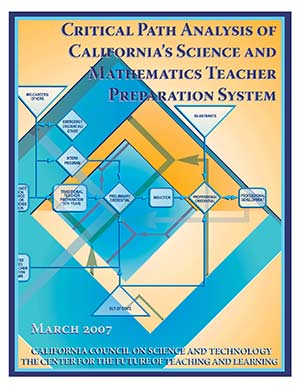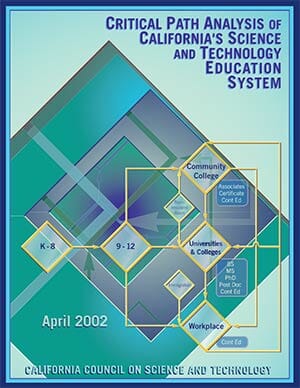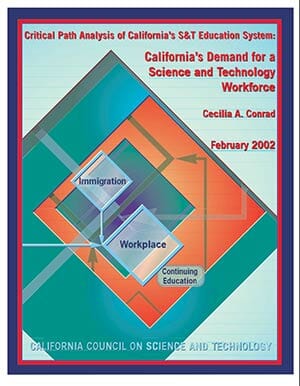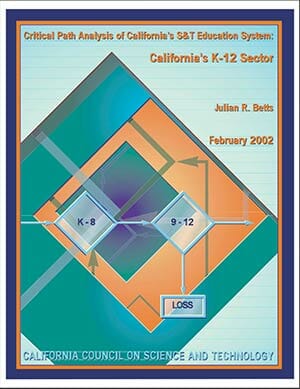The Preparation of Elementary School Teachers to Teach Science in California
Author(s): DeCillis, M. Daniel and Diaz, Angela Phillips
Release Date: April 15, 2010 | Last Updated Date: February 20, 2015

Abstract
Throughout the past decade, CCST and the Center for the Future of Teaching and Learning (CFTL) have examined the preparation of California’s science and mathematics teachers. In their jointly produced 2007 report, they explored the details of the preparation and training of teachers with subject specific credentials in mathematics and science. However, the 2007 analysis focused on the supply and distribution of teachers with appropriate subject-specific credentials at the middle school and high school levels.
In The Preparation of Elementary School Teachers to Teach Science in California we provide a quantitative, descriptive and qualitative review of how elementary school teachers are prepared to teach science. It describes:
- Elementary science education and performance in California.
- How elementary teachers are prepared to teach science.
- The range of content knowledge that elementary teachers are required to learn during the preparation process.
- How prepared elementary teachers are to teach science, as rated by themselves and their supervisors.
- Examples of different teacher preparation approaches in practice at several public and private education institutions in California.
- Recommendations for measuring and improving the preparedness of both new teachers and currently practicing elementary teachers to teach science.
Key Findings
- First-year teachers surveyed consistently reported themselves better prepared to teach reading and math than science.
- Supervisor assessments of the teachers have been consistently higher than teacher self-assessments, and increased over the eight years of the survey, leading to a difference of approximately 20% by 2006-7.
- Experienced teachers reported higher self-assessments of proficiency in reading and math, but nearly identical levels to first-year teachers in science.
The report identifies some interesting discrepancies between the supervisors’ assessments of the teachers and their own self-evaluations over the years. The study also presents representative best practice case studies from major institutions of higher education in California.
Recommendations
- Share and disseminate information on existing promising programs and infrastructure proactively and more effectively
- Adapt existing policies to protect and enhance K-6 science teaching
- Take a leadership role in the discussion of science standards
- Follow the recommendations of the “Building a Village” convocation






